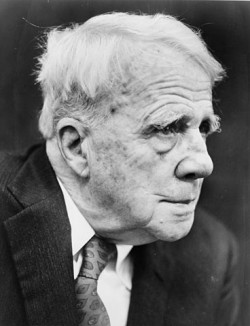 While I love most, not to say all, of James Thurber’s cartoons, there are a handful that seem especially choice. An example? Picture a courtroom, with a judge, a startled man in the witness box, and a prosecuting attorney—who is pointing, triumphantly, to a large kangaroo. The caption: “Perhaps this will refresh your memory?” My absolute favorite, though, depicts a guy sitting hopelessly at a typewriter, surrounded by crumpled sheets of paper, while his wife looks down at him and says, “Has your pen gleaned your teeming brain?”
While I love most, not to say all, of James Thurber’s cartoons, there are a handful that seem especially choice. An example? Picture a courtroom, with a judge, a startled man in the witness box, and a prosecuting attorney—who is pointing, triumphantly, to a large kangaroo. The caption: “Perhaps this will refresh your memory?” My absolute favorite, though, depicts a guy sitting hopelessly at a typewriter, surrounded by crumpled sheets of paper, while his wife looks down at him and says, “Has your pen gleaned your teeming brain?”
Her question is based on a famous quotation from Keats: “When I have fears that I may cease to be / Before my pen has glean’d my teeming brain.” Certainly, the fears of that doomed tubercular genius, dead at 25, were wholly justified. But I suspect all authors occasionally sit down at their keyboards or open their notebooks and find that Nothing Happens. Every idea seems stale, every sentence hackneyed. At such moments, writers—whether of novels, essays, poems, or book reviews—adopt various coping methods.
Perhaps a walk around the block or a new environment will clear the head, reopen the floodgates. For some, a move downstairs to the dining-room table or a weekend escape to a friend’s condo on the Chesapeake will be enough. Alternately, one can just hunker down for the duration. Flannery O’Connor resolved to be at her worktable every day between 9 and 12, no matter what. If inspiration struck, she was ready. And if it didn’t, she still couldn’t leave her desk, and so she might as well scribble away at something.
Occasionally, of course, full-fledged Writer’s Block sets in. The harder you try, the worse it becomes. Frustration intensifies exponentially before ushering in a long visit from that Pilgrim’s Progress favorite, The Giant Despair. His voice echoes in your head: everyone knows you’re not any good. Never were really. Just an untalented phony from the get-go. Face it, you’ve been kidding yourself for years. Your so-called work is completely hopeless, not even a joke. Whatever gave you the idea that you could write in the first place? Look at this pitiful stuff. No one cares, anyway.
Sometimes Writer’s Block can be overcome with luck, persistence, and various subterfuges. Robert Sheckley, a master of the black-humored science fiction story, suddenly found that his hitherto steady flow of ideas had dried up. There’d been too many drugs, too much hard living. But eventually he started to produce saleable material again by telling himself: I can no longer write real Sheckley stories—that’s obvious even to me—but I can certainly turn out imitation Sheckley stories. And so he did. For readers these “imitations” were okay, not great, but still enjoyable, still Sheckleyesque.
In effect, this is what many writers gradually end up doing in their later years. More and more, they become pale imitations of themselves, reworking old themes, retelling the old stories, relying on professional smoothness to cover up the lack of freshness and originality. While kindly friends assure them that they’ve still got it, editors seem to blue-pencil their submissions more and more, or refuse their work altogether because they’re “overbooked.” Eventually, the day arrives when Robert Frost’s “Provide, Provide” pops into the graying head: “No memory of having starred / Atones for later disregard / Or keeps the end from being hard.”
But what’s a writer to do? Should he or she just pack it in? How, then, will the rent get paid and what about the car payments? So you put a Willy Loman shine on your shoes, a Gene Kelly smile on your face, and you soldier on: “Hey, Sid, I was wondering if you could use an article on …”
At night, though, the writer stews, blaming the hated Literary Establishment which refuses to acknowledge real talent. Younger people—nothing but good looks, probably sleeping with the judges—take home the awards and the big fellowships. There really is no justice. Before long, the tab at the local saloon is running into triple digits. If illness strikes, so much the worse, especially with so much left unaccomplished. All you want is to bring out one more book, the one that will finally redeem all the dashed hopes and dreams. “Not since The Great Gatsby has any novel so beautifully captured the American experience … Flaubert would envy such prose … These are the poems Keats would have written had he lived … Such essays change forever the way we think about literature.” And on and on. But finally, instead of such praise and plaudits, one hears only the rasping voice of the eternal pub-keeper: “Hurry up, please, it’s time.”
Let me stress, though, that none of this applies to you or me. Nope, could never happen to you or me. Not in a million years.
Provide, provide.

